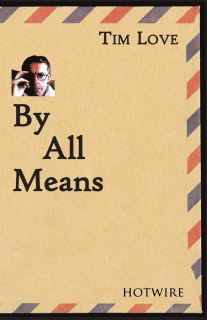Some reviews of Heaney's recent book have revisited the theme of poets and aging - e.g. "[Heaney] has for some time been recycling the same tropes ... It isn't just mainstream poets who do this; John Ashbery has been writing the same book for years now. I guess there comes a point when a poet runs out of things to write about, or simply no longer has the need to try anything new", Alan Baker, 2010
Of course, many poets do change. In "Identity Parade" Roddy Lumsden wrote "like many poets, [Gwyneth Lewis'] work has loosened and opened into a less implicit and more self-aware, narrative-driven style". I think that trend is fairly common - Lowell and Rich opened up, I guess, though perhaps they were only following the zeitgeist that prevailed as they reached maturity. The output of some poets (Geoffrey Hill for example) changes thanks to a new drug regime. But I think poets often keep to the styles that first gained them a readership. New experiences will come along - new places, people, technology, arts - but the reaction to these can end up as obituaries or nostalgia.
I suspect that some types of writers cope better than others with aging. Rather than write less or write worse, some try to adapt, finding new sources of inspiration, or less wasteful techniques. But it's not all good news
- "After working on one's poetry for several years, it is normal for the primitive autobiographical drive to come to an end. At this point, you have the time to devise new ways of working; a new generator of the unpredictable is needed, and this is supplied by chance or indeterminate procedures, combined with rules chosen to generate new decisions. Of course, if you believe only in autobiographical poetry, this temporary pause is not liberation, but a source of depression, neurosis, and eclipse", Andrew Duncan, "The Failure of Conservatism in Modern British Poetry", 2003, p.39
- "It's strange, being old. One thing that's clear: inspiration becomes rarer, and imagination less intense and spontaneous", Donald Hall, APR, Mar/Apr 2005
- "The aging process almost always brings to the poet the secret conviction that he has settled for far too little ... All his lifelong struggle with 'craft' seems a tragic and ludicrous waste of time", Dickey, "The Young American Poets" (ed Carroll), 1968.
When a new generation emerges (maybe it's happening now in the UK), older poets may need to re-position themselves or even stand aside. Andrew Duncan wrote that "With the exception of Eric Mottran, I have not found a single [UK post 1950] critic who has a distinguished record of writing about the poets younger than them".
Many of the factors that encourage the creation of a generation are present currently
- Mass - UK creative writing courses are now producing that
- Means of communication - the younger generations have the WWW (used in a "web 2" way it's a YoungGen thing)
- Critical Support - People like Ben Wilkinson write about contemporaries and older poets. Roddy Lumsden supports younger poets via various initiatives.
- Separation - an exaggeration of the difference between the old and the new helps initially
- Crisis - Even established poets are finding it harder to get published nowadays. Young poets are finding new ways (performance, new tech, etc)
I'm not very autobiographical and have never depended on intense inspiration or imagination. I think I've become more efficient at finding and exploiting material. Who knows, I might even be improving with age ...
 My story collection "By All Means" (ISBN 978-0-9570984-9-7), published by Nine Arches Press, is on sale from
My story collection "By All Means" (ISBN 978-0-9570984-9-7), published by Nine Arches Press, is on sale from  My poetry pamphlet "Moving Parts" (ISBN 978-1-905939-59-6) is out now, on sale at the
My poetry pamphlet "Moving Parts" (ISBN 978-1-905939-59-6) is out now, on sale at the 
No comments:
Post a Comment